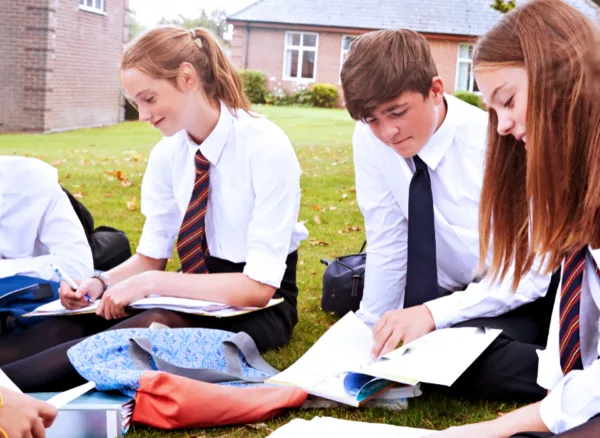Menu

Listen to a podcast produced by The Cambridge Overcoming Polarization Initiative, a TWCF-supported project led by Sander van der Linden.
Polarization poses one of the most pressing challenges to modern democracies, exacerbating social divisions and undermining collaborative problem-solving.
CounterPol, a podcast launched by The Cambridge Overcoming Polarization Initiative (COPI), a TWCF-supported project led by Sander van der Linden, explores the roots of polarization and how to address it. Host Ceejay Hayes engages researchers, social media experts, conflict specialists, and peacebuilders to examine why "us-versus-them" dynamics persist, and how repair might be possible.
From the show notes:
"Democracies are divided. So divided, in fact, that Tom Carothers - Co-Director of the Democracy, Conflict, and Governance Program at the Carnegie Endowment for International Peace - wrote an entire book on it.
If someone asked you to think about a democracy in trouble, chances are the United States comes to mind. And not without reason; the current presidential race is shaping up to be a re-match between two deeply unpopular candidates - one of whom poses a threat to the very institution of Western democracy.
The reality is that democracies everywhere are struggling. Carothers' book provides insights into the challenges facing democracies in Europe, Asia, Africa, and South America. We talk with Tom about what and who is responsible for this troubling trend in democracies."
Listen to the episode with the above player, to hear Carothers discuss the global rise of polarization in democratic societies with Ceejay Hayes and Alan Jagolinzer. They examine factors such as economic inequality, cultural conflicts, and the role of populist leaders in deepening societal divides.
Episode 2: Polarization as a Global Phenomenon with Jennifer McCoy
From the show notes:
"Pernicious polarization is spreading like wildfire across democracies around the world. And the outlook for the world is, well, awful. The World Economic Forum ranks 'Societal Polarization' third in its list of short-term risks - and ninth in long-term risks - in its 2024 Global Risk Report. Adding to the concern are the interactions between polarization and misinformation, worsening economic opportunities, and intrastate violence.
But what if depolarization is a real possibility? What if polarization itself is not wholly adverse or harmful? What can we learn from moments of deep polarization across time and space to inform the crisis of today?
Jennifer McCoy talks about different countries' experiences of polarization, how what's happening in the U.S. stands out from the rest of the world, and countries that have managed to walk back from the cliff's edge."
Find some of McCoy's recent research here: Reducing Pernicious Polarization: A Comparative Historical Analysis of Depolarization and here: Overcoming Polarization.
From the show notes:
"It's perhaps easy to assume that deepening social discord is worsening at the hands of political entrepreneurs. But are we underestimating the agency voters' leverage in their decision-making? Are voters as radicalized as their party? If not, why do they continue to vote in the way that they do? In fact, why are electorates as polarized as they are if voters aren't as extreme as their party's platforms imply?"
In this episode, Yphtach Lelkes, Co-Director of the Polarization Research Lab, joins Ceejay Hayes and Alan Jagolinzer to discuss how lineage can predict political leanings, how politicians and voters interact to polarize the public, and why he thinks polarization is not as bad as we think it is.
Episode 4: Social Media and Knowledge Production with Yoel Roth
From the show notes:
"Anyone who's spent time on social media can tell you just how divisive the digital communications space can be. Opinions and ideologies take on a life of their own on platforms like Facebook, Instagram, TikTok, and the icon formerly known as Twitter. The combination of opposing views, loud voices, and general lawlessness makes the internet ripe for discourse spectacle.
The role of social media in propagating polarization is a hot topic among researchers, and for good reason. In the venn diagram of polarization, misinformation, free speech advocacy, and politics - social media sits firmly in the centre. Any positively impactful depolarization strategies will have to consider how we reform social media towards this end.
Yoel Roth, Former Head of Trust & Safety at Twitter and visiting scholar at UPenn's Center for Media at Risk, examines how social media became a powerful tool in elections and governance, the social and financial arguments for content moderation, and examples of apps that promote a healthier digital communications ecosystem."
Learn more about Templeton World Charity Foundation's Listening & Learning in a Polarized World (LLPW) priority.
CounterPol (short for "Counter Polarization") is a podcast from The Cambridge Overcoming Polarization Initiative (COPI). COPI, funded by a grant from Templeton World Charity Foundation with its LLPW priority, brings together scholars from across disciplines to develop a nuanced understanding of how polarization affects communities and how to counter such division, aiming to tackle polarization at its root.
CounterPol features conversations with researchers, social media experts, conflict specialists, and peacebuilders to get their take on the characteristics and lived experience of polarization in society. CounterPol goes beyond the political to interrogate why us-versus-them dynamics are so salient, and how we could possibly repair our fractured relationships. Join Ceejay Hayes, Alan Jagolinzer, and Sander van der Linden as they dive into the complex world of polarization.




